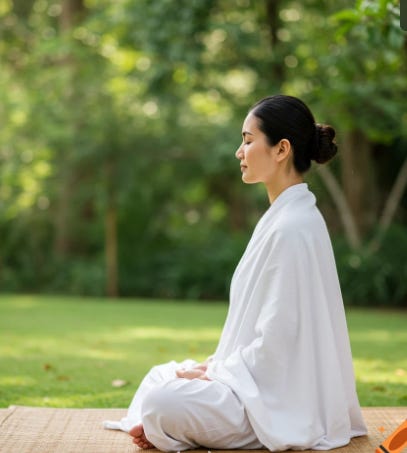I recently made a comment, “Love yourself”, to someone’s note on Substack about daily routines.
The pouring-in “likes” to this simple comment reminded me that this is a topic Substack readers may like to hear more.
So here I am writing about it.
Fortunately, we have many, many loving people in this world.
Unfortunately, so many of us loving people, while devoting ourselves to loving others, often forget about loving ourselves.
Or some, actually, I could say not a small number, don’t know how to self-love.
A study by University of California showed that only about 20% of adults consistently report a high level of self-love indicators.
Get your level checked up here (see the Assessments section). But don’t panic if you are not in the “high” category.
The good news is, self-love can be cultivated and improved, with research-proven methods offered here in the Personalized Coaching section.
Why do we need self-love?
Firstly, what is self-love?
Not to be confused with narcissistic “self-adoration” or “self-importance”, which are unhealthy and not truly self-love.
Self-love is an enduring sense of self-acceptance, self-compassion, self-worth, and proactive care for one’s well-being (physical, emotional, mental, etc.)
It is easy to see that if a child, or someone else under our care, would not have our acceptance and compassion, or we would deem them unworthy, or we would not take proactive care for their well-being, then they would not thrive, nor even survive.
It is the same for the self.
The self is under our own care.
If we do not have our own acceptance or compassion, or do not appreciate our own worth, or we do not take proactive care for our own well-being, we will not thrive; or in severe cases, we might not even survive.
Research has shown that self-love helps to:
Reduce depression
Buffer against stress
Prevent burnout.
Promote self-esteem
Facilitate healthy relationships
Enhance physical health
Motivate personal growth
Increase resilience against adversity
Help overcome social pressure
……
The benefits are endless.
And it certainly lays a foundation for our happiness.
On the other hand, research also showed that lack of self-love often leads to:
Chronic self-criticism
Increased depression
Intensified anxiety
Other affective mental issues
Feeling of worthlessness
Fear of failure
Relationship problems
Physical neglect leading to health issues
……
The harms from lack of self-love are also endless, certainly preventing one from achieving happiness.
Lack of self-love will also make loving others difficult, if not impossible.
It is difficult to care for someone else when you are depressed or suffering anxiety;
It is hard to have a loving relationship if you don’t love yourself;
It is almost impossible to instill confidence in your child if you often self-criticize;
It is certainly impossible to promote self-worth in your child when you feel worthless;
….
To love others, we have to have self-love already.
We don’t just want to love ourselves as we love others; we actually want to cultivate healthy self-love first and foremost, then we can better love others.
To practice self-love, taking up Loving-Kindness Meditation is a good start (see below).
Other ways of cultivating and improving self-love will continue to be introduced in this Substack, so stay tuned!
Loving kindness, starts from loving and being kind to yourself….
The Power of Loving Kindness Meditation
One type of well-researched meditation is Loving Kindness Meditation (LKM). It emphasizes on compassion, love, and kindness, toward the self, loved ones, others you know, strangers, and even people you dislike.
(Graphs generated with Craiyon)






I very much enjoyed your Piece... i'm also writing someone on this theme of compassionate inquiry, forgiving ourselves and more.